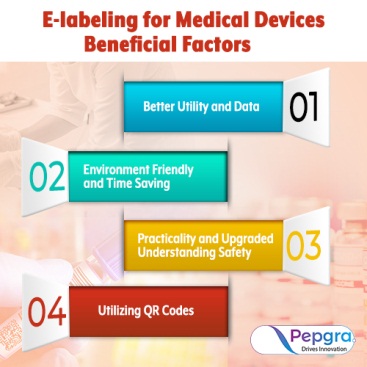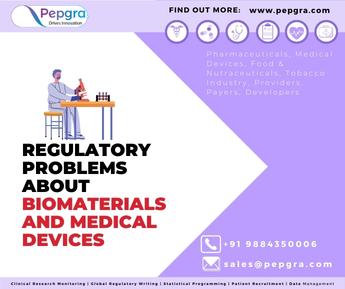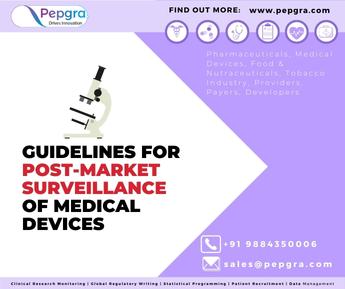In-Brief:
- E-labelling is not new evidence; nor is its use partial to the life sciences business.
- Creating the latest product data available online adds value across various industries, particularly in healthcare analytics solutions.
- Pepgra gives you the challenges and uses of e-labelling (electronic labelling) in the healthcare data analytics companies.
Introduction:
E-labelling (electronic labelling) plays a severe role in the medical devices industry, as it confirms to improve operational efficacy, maintain brand consistency, obtain obedience and support business growth. Hence, the healthcare data analytics solutions move towards adopting end-to-end e-labelling life cycle procedures, starting from label content creation to review and approvals. How are they beneficial and what kind of challenges one would face while adopting them? Let us know in detail.
E-labelling for Clinical Devices – Beneficial factors
As a piece of the EU’s new Clinical Device guidelines, any device producer with a site should distribute client data to it in electronic structure. Other worldwide wards have comparative prerequisites, which put a new accentuation on e-naming as a control: the electronic distributing of naming substance, including Instructions/directions for Use (IFU/DFU).

Better Utility and Data
- Simple admittance to data, upgraded comprehensibility and more justifiable for clients so they can get all the item data
- Customization for country-explicit labels and plans
- Expanded proficiency and utility through online evaluation by a controller and other related Healthcare Data Analysis.
Environment Friendly and Time Saving
- Diminished utilization of materials for labels and decreased natural effect
- The general season of the assembling interaction is abbreviated
- The big data analytics in healthcare on e-labels can be refreshed distantly for a product
Practicality and Upgraded Understanding Safety
- The e-labels save cost, paper and space and dispense with the danger of IFU (Instructions for Use) getting lost or isolated from their related devices for healthcare data analytics
- They are tough and are not liable to blurring or pollution
- They upgrade device security and improve data trade by making successive updates to the electronic IFUs
Utilizing QR Codes:
- The QR codes are generally speedy and straightforward and help to associate the controllers and purchasers to the site facilitating consistency and with different prerequisites
- Given the expansion of cell phone access using free applications, the QR codes are utilized in a broad scope of settings and permit the client to examine the QR codes and access the critical data
E-labelling for Clinical Devices – Difficulties
Multilingual Labelling
- The labels should be securely and precisely tweaked in proper area dialects to get to a few topographies and hold fast to the country-explicit naming necessities, plans and Administrative prerequisites
- Any labelling mistakes can make the danger of brand picture harm, particularly during item reviews. Nonetheless, mark Lifecycle Management Solutions (LMS) have become a powerful weapon in the language the board stockpile and a demonstrated, approved naming programming framework will eliminate the apparent complexities of locality language detailing same time meeting country-explicit prerequisites.
Overseeing Complexities of Extension
- With steady consolidations, acquisitions and developments, the labelling tasks of clinical devices are altogether influenced.
- A labelling programming framework will improve the name trustworthiness and consistency and help deal with the naming information. All the more successfully, aiding each part of the by and large naming interaction, including adherence to country-explicit necessities and decreasing the requirement for physically observing the naming cycle.
Controlling Mark Deformities
- Expanding labelling mistakes lead to visit item reviews, other than affecting operational proficiency and benefit.
- Robotized vision frameworks are acquainted with guarantee more powerful, proficient, and secure methods of zero-imperfection naming.
Absence of Gear and Specialized Capacities
- Network issues are experienced while checking e-labels with handheld devices for healthcare analytics
- To guarantee network, versatile, or Wi-Fi internet providers can be utilized. Additionally, scanners, that can peruse, and store labels disconnected can be used, and the labels can be checked later when the device interfaces with an organization
Conclusion:
More or less, e-labelling will decrease the manual intercession and give collected quality data, improve quiet security, consistency, and brand respectability, diminish the natural effect, and in particular, it will be financially savvy. The solitary inquiry device makers should ask themselves now: “would we say we are e-labelling prepared”? Do a complete examination with an Administrative labelling master for clinical devices. Stay educated. Stay consistent. Pepgra gives you the challenges and uses of e-labelling (electronic labelling) in the healthcare analytics companies.
References:
- Ângelo, A., Barata, J., da Cunha, P. R., & Almeida, V. (2017, September). Digital transformation in the pharmaceutical compounds supply chain: Design of a service ecosystem with e-labelling. In European, Mediterranean, and Middle Eastern conference on information systems(pp. 307-323). Springer, Cham.
- Bolislis, W. R. R., Mortazavi, C., Riccioni, R., Schaeffer, P. E., & Kühler, T. C. (2019). From Print to Screen: Regulatory Considerations to Adopting Innovative Approaches for Patient Information and Safety. Therapeutic innovation & regulatory science, 1-8.
- Gassner, U. M. (2007). E-labelling & the Comitology Procedure–Outcomes of the MDD Review Process.






